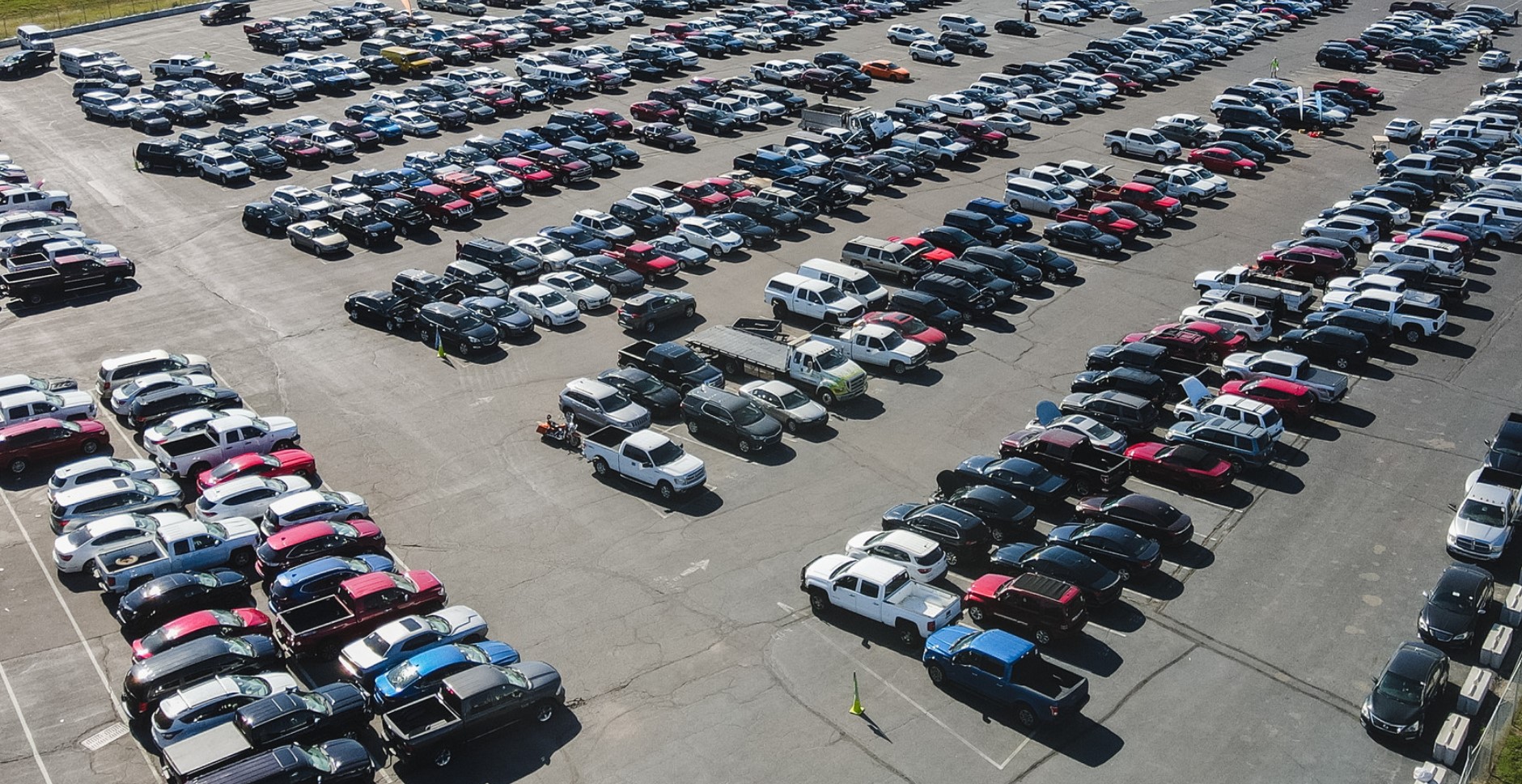Public car auctions have become a popular way for people to buy vehicles at affordable prices. Whether you’re looking for your next family car or a project vehicle to restore, understanding how public car auctions work can be the key to getting a great deal. In this comprehensive guide, we will walk you through the entire process, from registration to driving your new car off the auction lot.
Registration and Inspection
1. Registering for the Auction
Before you can participate in a public car auction, you need to register. Registration typically involves providing some personal information, such as your driver’s license and contact details. Some auctions may also require a registration fee, so it’s essential to check the specific requirements for the auction you plan to attend.
2. Vehicle Inspection
Once registered, it’s time to inspect the vehicles up for auction. This is a crucial step as it allows you to assess the condition of the cars you’re interested in. Most reputable auctions provide ample time for prospective buyers to inspect the vehicles thoroughly. It’s advisable to bring along a knowledgeable mechanic or a friend with automotive expertise to help you assess the cars’ condition.
Bidding Process
Setting Your Budget
Before entering the bidding arena, establish a budget. Determine the maximum amount you’re willing to spend on a vehicle and stick to it. Auctions can be competitive, and it’s easy to get caught up in the excitement, potentially overspending.
Understanding the Auctioneer
The auctioneer plays a pivotal role in the bidding process. They are responsible for starting and closing bidding on each vehicle. Pay close attention to their cues and announcements. When the auctioneer presents the car you’re interested in, be ready to raise your hand or bidding card to place your bid.
Competitive Bidding
Participating in competitive bidding at a public car auction can be both exhilarating and challenging. Here’s a breakdown of how to navigate the competitive atmosphere and increase your chances of winning your desired vehicle:
- Stay Calm and Confident: As the bidding heats up, it’s crucial to remain calm and confident. Avoid getting caught up in the excitement and making impulsive decisions. Stick to your predetermined budget to ensure you don’t overspend.
- Observe and Learn: Before jumping into the bidding frenzy, take some time to observe how other participants are behaving. You can gain valuable insights by watching their strategies, including when they place their bids and how they react to competing offers.
- Set a Limit: Determine the maximum amount you’re willing to pay for the vehicle and stick to it. This limit is essential to prevent you from getting carried away in the heat of the moment. Discipline is key to a successful auction experience.
- Timing is Everything: Bidding at the right moment can make all the difference. Some experienced bidders prefer to wait until the last possible second to place their bids, catching competitors off guard. However, this strategy carries risks, so use it judiciously.
- Don’t Reveal Your Limit Early: Avoid revealing your maximum bid too early in the process. If other bidders know your limit, they may push the price higher, making it more challenging for you to secure the vehicle at a reasonable price.
Winning the Auction
If you have the highest bid when the auctioneer closes the bidding, congratulations! You’ve won the vehicle. You will be required to pay for the car immediately, so make sure you have your payment method ready. Accepted payment methods vary but typically include cash, credit cards, or cashier’s checks.
Payment and Documentation
Payment Process
Completing the payment process at a public car auction is a critical step toward taking ownership of your chosen vehicle. Here’s a breakdown of the essential steps:
- Ensure Adequate Funds: Before attending the auction, make sure you have the necessary funds or financing in place. It’s essential to know your budget and have the means to pay for the vehicle if you win the bid.
- Accepted Payment Methods: Auctions typically accept various payment methods, including cash, credit cards, and cashier’s checks. Ensure you know the accepted forms of payment at the specific auction you’re attending.
- Financing Options: Some auctions offer financing options for buyers who may need assistance with their purchase. If you’re considering financing, inquire about these options in advance.
- Payment Deadline: Once you’ve secured the winning bid, be prepared to make the payment immediately. Auctions often have strict deadlines for payment to keep the process efficient.
- Additional Fees: Be aware of any additional fees associated with the purchase, such as buyer’s premiums or taxes. These can vary from auction to auction and may affect your overall cost.
- Documentation: Ensure you receive the necessary paperwork, including a bill of sale and title transfer, to complete the transaction officially. Familiarize yourself with your local requirements for vehicle transfers.
- Confirmation of Payment: After payment is made, you’ll typically receive a receipt or confirmation of your purchase. Keep these documents safe as proof of ownership.
Documentation
Documentation plays a pivotal role in the process of acquiring a vehicle at a public car auction. Here’s an overview of the essential documents you’ll encounter:
- Bill of Sale: The bill of sale is a crucial document that records the transaction details, including the vehicle’s identification information, sale price, and the names and signatures of both the buyer and the seller (the auction house). It serves as legal proof of the sale and is essential for title transfer.
- Title Transfer: The title is a legal document that proves ownership of the vehicle. It’s vital to ensure that the title is properly transferred from the auction house to your name. This process varies by location but typically involves submitting the signed title to your local Department of Motor Vehicles (DMV).
- Odometer Disclosure Statement: In many regions, you’ll also need to provide an odometer disclosure statement, indicating the vehicle’s mileage at the time of sale. This statement helps prevent odometer fraud and is usually part of the title transfer process.
- Vehicle History Report: While not always provided by the auction, a vehicle history report can be invaluable. It offers insights into the car’s past, including accident history, title issues, and more. Purchasing a vehicle history report independently can provide peace of mind about your purchase.
- Temporary Operating Permit: In some cases, you may receive a temporary operating permit that allows you to legally drive the vehicle while awaiting the official title transfer. Be sure to check the specific requirements in your area.
- Sales Tax and Other Fees: Depending on your location, you may need to pay sales tax and other fees associated with the purchase. These additional costs should be factored into your budget.
- Insurance: Before hitting the road with your newly acquired vehicle, ensure you have the necessary insurance coverage in place. Contact your insurance provider to update your policy or secure a new one.
- Other Documentation: Occasionally, there may be additional documentation required, such as emissions certificates or safety inspections. These requirements can vary by jurisdiction, so it’s essential to research and comply with local regulations.
Taking Possession of Your Vehicle
Taking possession of your vehicle is the final step in the exhilarating process of buying a car at a public auction. Once you’ve successfully secured the winning bid, the next exciting chapter begins. Most auctions have designated pickup areas where you can claim your newly acquired vehicle. It’s essential to come prepared with the necessary tools or towing equipment if the car isn’t in running condition. Before driving off, take a moment to double-check the vehicle’s condition, ensuring it matches your expectations based on your earlier inspection. Once you’re satisfied, you can hit the road in your new set of wheels, knowing you’ve just scored a fantastic deal at a public car auction.

